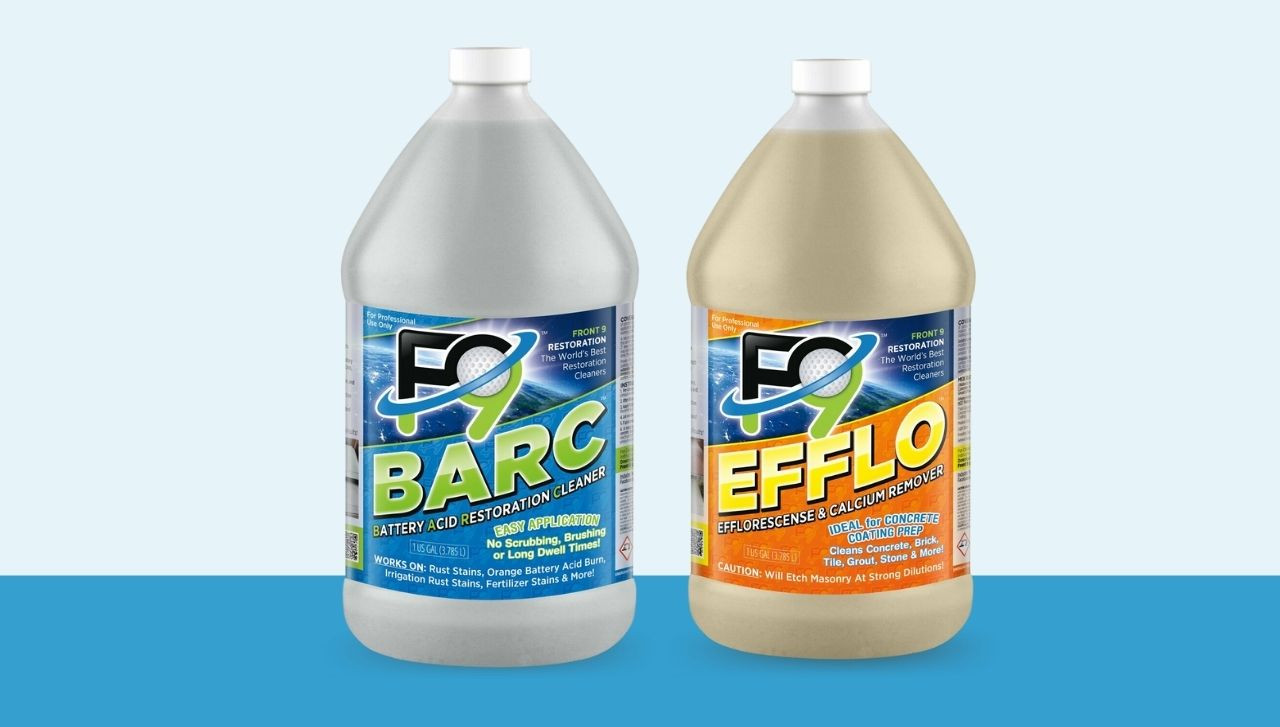Pressure washing is a reliable way to remove tough stains from large or hard-to-access surfaces. Many pressure washers include a nozzle that allows you to mix a cleaning solution in with the water stream for a more efficient clean. Consider using this “soft wash” approach to cleaning rather than high pressure.
Cleaners, degreasers, efflorescence removers, mineral deposit removers, restorers, and rust removers are just some of the cleaning solutions you can use. But have you ever wondered what gives these solutions their stain-busting powers? If you're curious what kind of chemicals are used in pressure washing, here are five of the most common ones and what they do.
Oxalic Acid
This acid is an organic compound found in various vegetables, fruits, nuts, and seeds. It's not only good for your health—it's also good for cleaning. Once isolated and purified, oxalic acid becomes a white, crystalline substance that acts as a bleaching agent. It's typically used to remove stains and rust on wood and stone.
Citric Acid
Citric acid is another organic compound. It's found naturally in citrus fruits. Just like oxalic acid, it turns into a powerful, powdery bleaching agent once it’s isolated and purified. You can use it to sanitize, disinfect, and clean most surfaces. It's especially effective at removing mildew, water stains, and rust.
Bleach
Bleach is a mix of two other common stain and grease removers: sodium hydroxide and sodium hypochlorite. It's an alkaline chemical that's highly effective at sanitizing and disinfecting surfaces. Because bleach is so powerful, avoid using it on metals such as copper, brass, and stainless steel, porous woods, and delicate stones.
Ammonia
Another kind of chemical used in pressure washing is ammonia. Ammonia is a naturally produced gas made up of nitrogen and hydrogen atoms. It's colorless and has a pungent, irritating odor. Even though it doesn't smell that great, it's an effective alkaline cleaner that’s safe to use on delicate surfaces like stainless steel and glass.
Sodium Hydroxide
Sodium hydroxide—which you may know better as caustic potash or lye—is a light-colored and lumpy solid that's used to make liquid soap. This ingredient is a necessity in pressure washing chemicals!
Use safely
It is important to note that while multiple chemicals may be required for the task at hand, they are most safe and effective to use when used individually. Remember to only mix chemicals as recommended by the manufacturer’s specifications. Some may require additional attachments to be used with your pressure washer. Rinsing may be required between applications.
If you need quality commercial power washing chemicals, contact us at Clean Pro Supply. We have a variety of power washing chemicals to choose from, so come on by and check them out! We have everything you need to clean any kind of surface.






